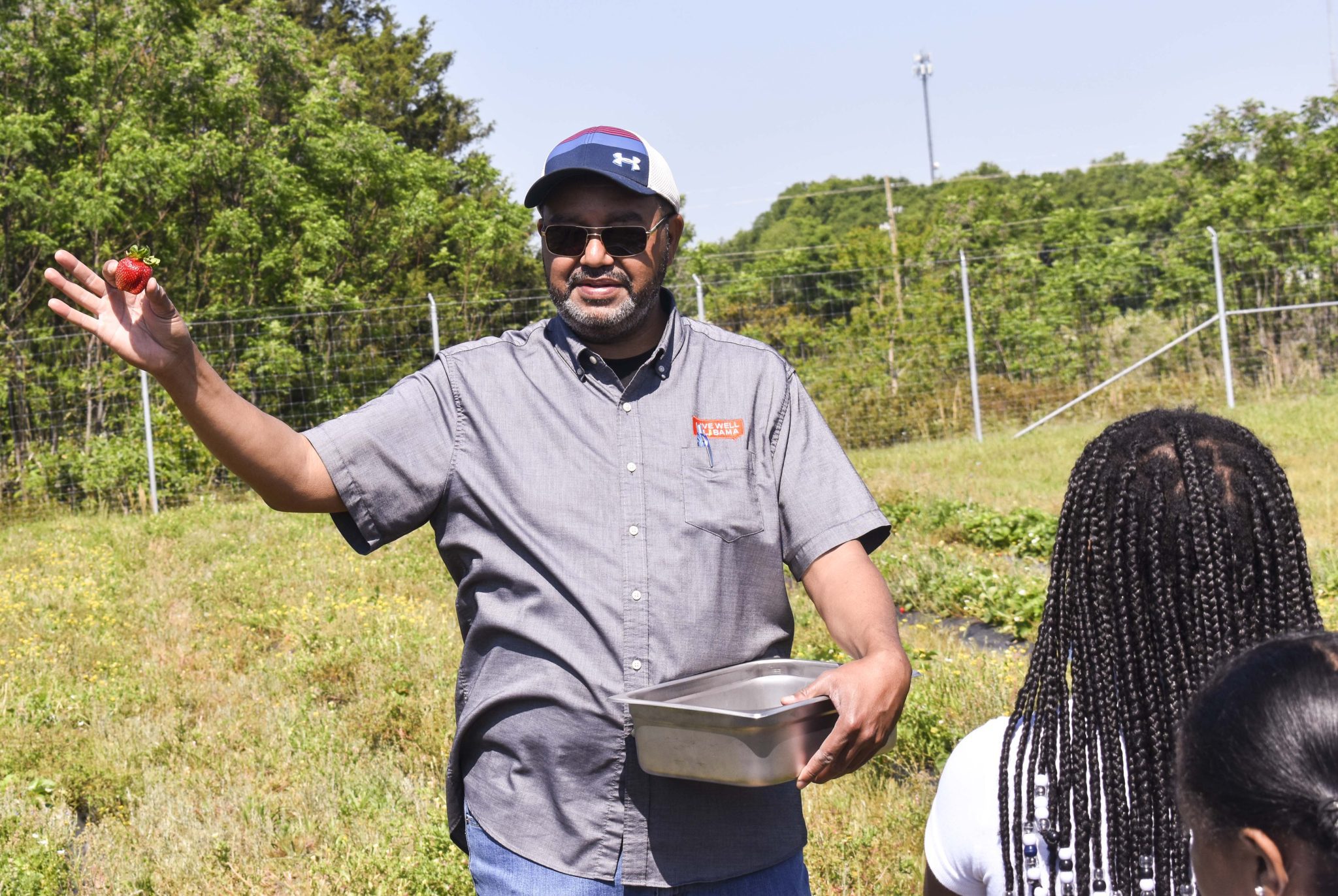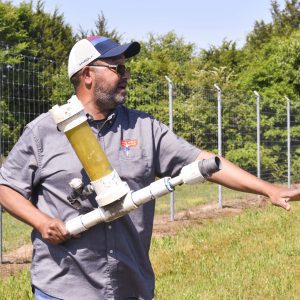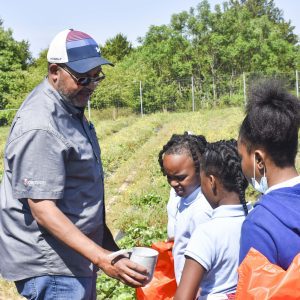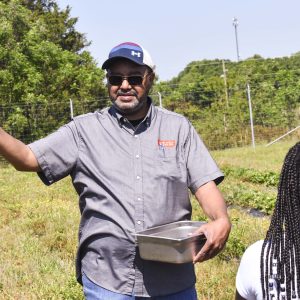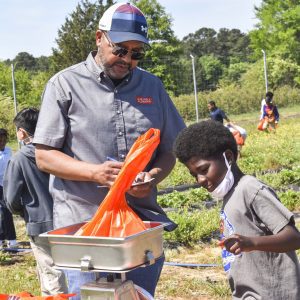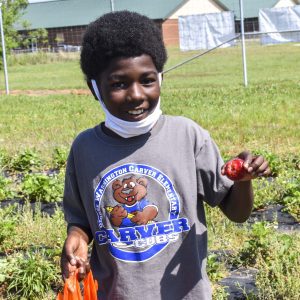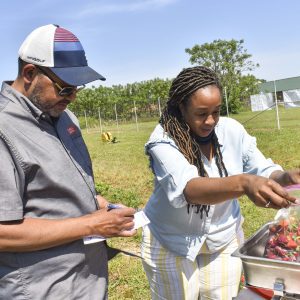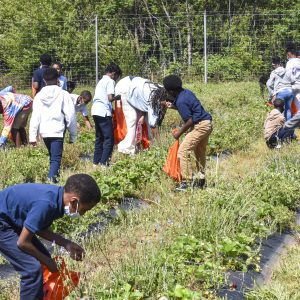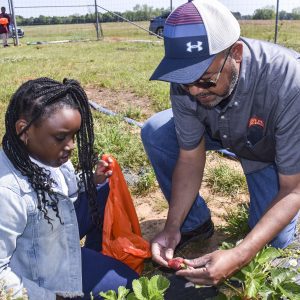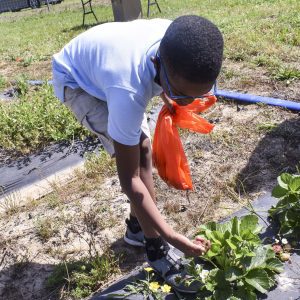Home & Family

AUBURN UNIVERSITY, Ala – What started as a blank canvas in November has transformed into a beautiful garden at George Washington Carver Elementary School in Macon County with thousands of strawberries waiting to be picked.
With the help of third-grade students who attend his Body Quest classes, Dominguez Hurry, an Alabama Cooperative Extension System SNAP-Ed educator in Macon and Bullock counties, was a key player in planting 2,000 strawberry seeds. He also received community support from Harold McLemore, a retired Alabama Department of Agriculture of Industries employee.
With guidance from Hurry, the students helped plant one row of strawberries, learning the proper way to plant, irrigate, water and protect against pesticides.
Fruits Of Labor
April 28, the students saw the fruits of their labor–a fully-grown strawberry garden with thousands of pounds ready to be picked. Hurry talked to the students about which strawberries were acceptable to pick. He showed them berries nibbled on by rabbits or birds and berries that weren’t ripe enough to be picked.
After a brief and energetic speech, the students were let loose into the garden with a chorus of laughter and excitement. After about 30 minutes of navigating through the rows of sweet strawberries, the students picked more than 115 pounds of strawberries.
According to Hurry, students and teachers will pick the entire garden within a few weeks at no cost, yielding near 2,000 pounds of strawberries.
“We’re providing access to fresh fruits to the kids and their families, and we’re doing it without causing a hardship on their families,” Hurry said. “We spend time teaching them about why strawberries are good for them, and then the kids get to have fun picking the berries in the field.”
Highlights Of The Job
Educators use the remaining strawberries to make smoothies and other classroom snacks. Hurry also uses strawberries to teach students about their nutritional value during Body Quest. Body Quest is an innovative childhood obesity prevention initiative that uses technology and hands-on learning to empower third-grade student and their parents to make healthier choices.
“Watching these kids enjoy picking the strawberries and enjoying the taste of fresh fruit is one of the highlights of my job,” Hurry said. “They do have fun, but the education about planting these strawberries is invaluable because they will learn the ability to grow their food.”
Hurry plans to continue the garden, but he’s making a change next year — collard greens. He said it’s time to go something new, and collards have a similar harvest cycle.
To contact Hurry, call (334) 738-2580 or email hurrydc@aces.edu. To find more success stories about SNAP-Ed educators, visit LiveWellAlabama.com.

